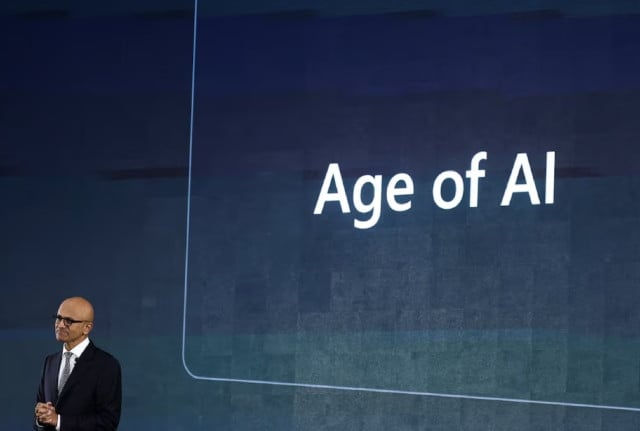

Shares of Microsoft and Meta Platforms fell over 3% in after-hours trading following their September quarter earnings reports, which, despite surpassing market expectations, failed to reassure investors about future growth prospects.
Concerns centered on both companies' escalating investments in artificial intelligence (AI) infrastructure, which have raised doubts about their ability to sustain growth amidst rising expenses.
Microsoft reported revenue of $65.59 billion for its first fiscal quarter of 2025, a 16% increase from the previous year, with earnings per share at $3.30.
However, the company’s guidance projected a slowdown in Azure cloud growth, forecasting a year-on-year increase of 31% to 32% for the next quarter.
This came as a disappointment to investors, especially after Azure growth decelerated to 34% year-on-year, down from 35% in the prior quarter.
The company's CFO, Amy Hood, highlighted ongoing capacity constraints at data centers as a major factor impacting revenue growth.
Microsoft's capital expenditures surged 79% year-on-year to a record $20 billion, raising alarms about the sustainability of such high spending.
Analyst Josh Gilbert from Oanda Australia remains optimistic, noting that enterprise spending on cloud services is on the rise, suggesting that Microsoft is just beginning its AI expansion.
In contrast, Meta reported a 37% increase in earnings per share, totaling $6.03, with revenue rising 19% to $40.59 billion.
Yet, the sharp decline in net income growth—from an average of 70% last year to 35%—indicates the toll of significant investment in AI and metaverse projects.
Meta's outlook for fourth-quarter revenue, ranging from $45 billion to $48 billion, slightly exceeded analysts' expectations but failed to alleviate concerns over its high spending.
CEO Mark Zuckerberg acknowledged the need for ongoing investments in AI infrastructure, particularly for Reality Labs and AI glasses.
He believes that these advancements could ultimately enhance the company’s core advertising revenue in the long run.
However, the market reacted skeptically, given the substantial operational losses projected for Reality Labs.
Both companies' earnings announcements followed a strong performance by Alphabet, which reported impressive growth fueled by its AI advancements.
This context heightened expectations for Microsoft and Meta, making their conservative guidance more disappointing to investors.
Overall, the market's reaction underscores a growing caution among investors regarding the hefty investments required for AI initiatives, even from industry leaders like Microsoft and Meta.
Recently, Microsoft enhanced its Copilot chatbot, which now features voice interaction and image interpretation.
Mustafa Suleyman, Microsoft AI's CEO, emphasized that Copilot is designed to be a supportive AI companion.
Microsoft, leveraging its $13 billion partnership with OpenAI, is competing with Google and Apple in the generative AI space.
Copilot's voice capabilities will initially roll out in English-speaking regions, with a vision tool currently in testing. Microsoft assures that user data will be discarded post-use to ensure safety.
Additionally, Microsoft is launching a "Think Deeper" feature for Copilot, enabling it to tackle more complex problems, alongside a personalization option based on user interaction history.
However, these updates will not be available in the EU and the UK due to stricter data regulations
Despite beating earnings expectations, the uncertainty about their ability to manage costs while sustaining growth has left investors apprehensive about the future performance of both tech giants.